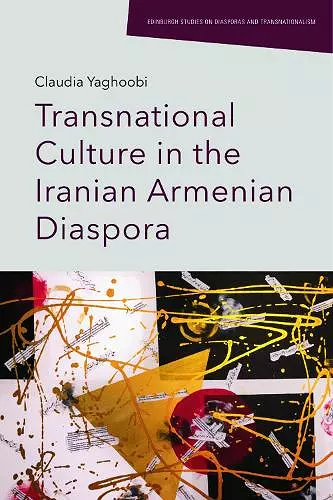Transnational Culture in the Iranian Armenian Diaspora
Format:Hardback
Publisher:Edinburgh University Press
Published:31st May '23
Should be back in stock very soon
This hardback is available in another edition too:
- Paperback£19.99(9781399512381)

Examines the ways diasporic Iranian Armenian authors and artists negotiate their identities in Iran and in the US Highlights a defining characteristic of Iranian Armenian diaspora which concerns Armenians' ability to negotiate their identity within a codified legal hierarchy in Iran within a codified legal ethno-religious hierarchy and in the US via a legally codified racial hierarchy Theorizes a concept specific to Iranian Armenian diaspora named verants'ughi (??????????) a transformational passageway Studies a variety of literary works written in Persian, Armenian and English, as well as other cultural pieces in music, art and film As an Iranian Armenian living in the US, the author includes first-hand life experiences as a minoritized member of Iranian Armenian population Problematizes our understanding of concepts such as multiculturalism and transnationalism in Iran and in the U.S., comparatively. Contributes to the broader topic of Iranian nationalism and the historical marginalization of Iranian minoritized populations, resulting in their global migration, but also examines multiculturalism and transnationalism within Iran. Transnational Culture studies the ways that diasporic Iranian Armenian authors and artists negotiate their identities as minoritized population within a liminal space that includes religious, ethnic, national, racial, cultural, gender, and sexual factors. Yaghoobi argues that this liminal state of fluidity helps them to develop a resilience towards ambiguity and handling ambivalence in dealing with various cultures as well as resisting dualistic thinking. This in turn allows them to move beyond national boundaries to transnationalism, yet simultaneously display the collective Armenian identity characterized by flexibility, adaptability, and continuity as a result of both multiple uprooting and a Genocide that continues to this day. They serve as a bridge between the homeland and the host nation, occupying what the author theorizes as verants'ughi the transformational passageway, which requires them to not only risk being in a transitory space and give up the safe space of home and the power that comes with it, but also through doing so, they create transformative works of literature and art.
"This book blends scholarly and personal history with literature, film and art, thereby illustrating how questions of identity are navigated by Iranian Armenians, both in Iran and in exile. It is a fresh and nuanced study that approaches the subjects of minorities, race and migration through a non-western lens." -James Barry, Deakin University
ISBN: 9781399512374
Dimensions: unknown
Weight: unknown
288 pages